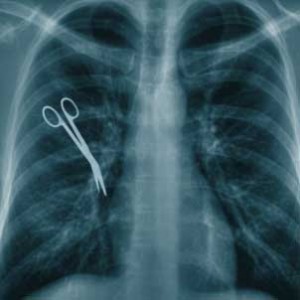December 9th, 2011 by Elaine Schattner, M.D. in Opinion, True Stories
1 Comment »

Over the weekend I developed another bout of diverticulitis. Did the usual: fluids, antibiotics, rest, avoided going to the ER, cancelled travel plans.
One of my doctors asked a very simple question: is this happening more frequently? The answer, we both knew, was yes. But I don’t have a Personal Health Record (PHR) that in principle, through a few clicks, would give a time-frame graph of the bouts and severity of the episodes over the past several years.
The last time this happened, and the time before that, I thought I’d finally start a PHR. Like most compulsive patients, I keep records about my health. In the folder in my closet in a cheap old-fashioned filing box, the kind with a handled top that flips open, I’ve got an EKG from 15 years ago, an Read more »
*This blog post was originally published at Medical Lessons*
October 6th, 2011 by StevenWilkinsMPH in Opinion
No Comments »

Irrational exuberance was a term once used to describe the stock market before the last crash. It also seems an apt description for much of the talk these days about empowered health consumers.

To be sure, patients today have unprecedented access to health information. Patient decision-support tool can be found on just about every provider, payer and self-insured employer website. Consumers can go to any number of websites to find quality data about hospitals, physicians and health plans. Personal health records (PHRs) promise to make our personal health data portable for meaning that all our treating physicians will be “singing off the same song sheet.”
That’s what the industry experts tell us. But what’s really going on? Here I will describe what I see as the top 5 myths about empowered health consumers. Read more »
*This blog post was originally published at Mind The Gap*
July 23rd, 2011 by Dr. Val Jones in Health Tips, Opinion
No Comments »
 Alright, I admit that the title of this post is a little dramatic. But it really does seem that most people I know socially have had a bad experience with the healthcare system lately. Take for example my friend whose 3- year-old went to the hospital for a common pediatric procedure – the little girl was overdosed on a medicine, aspirated, got pneumonia, went into respiratory distress (noticed first by her mom) and remained in the pediatric ICU for several days. The hospital staff swept the overdose under the rug, and outright denied it happened when faced with direct questioning. As outrageous as that all is, my friend chose not to pursue action against the hospital and staff for their error and behavior. She just “let it go” because no permanent harm had occurred.
Alright, I admit that the title of this post is a little dramatic. But it really does seem that most people I know socially have had a bad experience with the healthcare system lately. Take for example my friend whose 3- year-old went to the hospital for a common pediatric procedure – the little girl was overdosed on a medicine, aspirated, got pneumonia, went into respiratory distress (noticed first by her mom) and remained in the pediatric ICU for several days. The hospital staff swept the overdose under the rug, and outright denied it happened when faced with direct questioning. As outrageous as that all is, my friend chose not to pursue action against the hospital and staff for their error and behavior. She just “let it go” because no permanent harm had occurred.
Another dear friend was recently misdiagnosed with having a pulmonary condition when he was in heart failure from an arrhythmia… and almost had a stroke during a contraindicated pulmonary stress test. His simple conclusion: “doctors suck.” Was anyone held accountable for this? No. Again because no permanent harm had occurred.
Just the other night I was having dinner with some visitors from out of town. They both told me Read more »
May 29th, 2011 by DavedeBronkart in Research
1 Comment »

The Society for Participatory Medicine was well represented last week at the 14th ICSI/IHI Colloquium. (ICSI is the Institute for Clinical Systems Improvement, a small midwestern think tank that’s way too poorly known.) SPM members who presented:
- Jane Sarasohn-Kahn of Health Populi gave the keynote for Day 2
- Jessie Gruman, four time cancer patient and founding co-editor of our journal, gave an important breakout session, about which I’ll be writing soon. (Jessie is founder and president of the excellent Center For Advancing Health.)
- Brian Ahier presented on the status of health IT, as Meaningful Use rolls out. (“You can’t measure the improvements that you gotta measure, unless you have computers keeping track of it.”)
- I gave a half-day pre-conference workshop titled “Participatory Health: Reshaping Patient Care.” I’m told the workshop had 40-50% higher registration than usual: interest in participatory medicine is strong.
An unexpected bonus was that right outside the workshop door, a poster presentation addressed some questions people often ask about patient participation and online health records:
- Will patients with problems actually use a PHR (personal health record)? (Many observers say PHRs are a non-starter, a pointless exercise.) Read more »
*This blog post was originally published at e-Patients.net*
April 14th, 2011 by Jessie Gruman, Ph.D. in Health Policy, Opinion
No Comments »

 The outsourcing of work by businesses to the cheapest available workers has received a lot of attention in recent years. It has largely escaped notice, however, that the new labor force isn’t necessarily located in Southeast Asia, but is often found here at home and is virtually free. It is us, using our laptops and smart phones to perform more and more functions once carried out by knowledgeable salespeople and service reps.
The outsourcing of work by businesses to the cheapest available workers has received a lot of attention in recent years. It has largely escaped notice, however, that the new labor force isn’t necessarily located in Southeast Asia, but is often found here at home and is virtually free. It is us, using our laptops and smart phones to perform more and more functions once carried out by knowledgeable salespeople and service reps.
This was particularly salient to me this week: I spent an hour online browsing, comparing prices, reading customer reviews and filling out the required billing and shipping information to get a great deal on a new lamp. An airline would charge me 99 cents to talk to a person but provides information for free online. Calls to Amtrak to make train reservations are routinely answered with a message that the wait to talk to an agent is 30 minutes, but that I can book travel myself – plus get better deals – if I do it online. My bank has a small staff, limited hours and it charges extra for paper checks and mailed hard copy statements… but its Website is welcoming and useful, even at 3 a.m. Read more »
*This blog post was originally published at CFAH PPF Blog*





 Alright, I admit that the title of this post is a little dramatic. But it really does seem that most people I know socially have had a bad experience with the healthcare system lately. Take for example my friend whose 3- year-old went to the hospital for a common pediatric procedure – the little girl was overdosed on a medicine, aspirated, got pneumonia, went into respiratory distress (noticed first by her mom) and remained in the pediatric ICU for several days. The hospital staff swept the overdose under the rug, and outright denied it happened when faced with direct questioning. As outrageous as that all is, my friend chose not to pursue action against the hospital and staff for their error and behavior. She just “let it go” because no permanent harm had occurred.
Alright, I admit that the title of this post is a little dramatic. But it really does seem that most people I know socially have had a bad experience with the healthcare system lately. Take for example my friend whose 3- year-old went to the hospital for a common pediatric procedure – the little girl was overdosed on a medicine, aspirated, got pneumonia, went into respiratory distress (noticed first by her mom) and remained in the pediatric ICU for several days. The hospital staff swept the overdose under the rug, and outright denied it happened when faced with direct questioning. As outrageous as that all is, my friend chose not to pursue action against the hospital and staff for their error and behavior. She just “let it go” because no permanent harm had occurred.

 The outsourcing of work by businesses to the cheapest available workers has received a lot of attention in recent years. It has largely escaped notice, however, that the new labor force isn’t necessarily located in Southeast Asia, but is often found here at home and is virtually free. It is us, using our laptops and smart phones to perform more and more functions once carried out by knowledgeable salespeople and service reps.
The outsourcing of work by businesses to the cheapest available workers has received a lot of attention in recent years. It has largely escaped notice, however, that the new labor force isn’t necessarily located in Southeast Asia, but is often found here at home and is virtually free. It is us, using our laptops and smart phones to perform more and more functions once carried out by knowledgeable salespeople and service reps.







